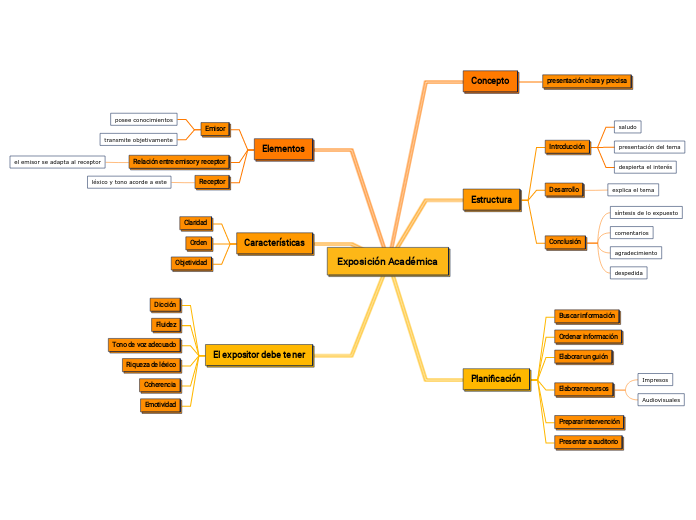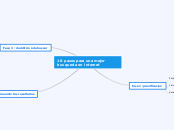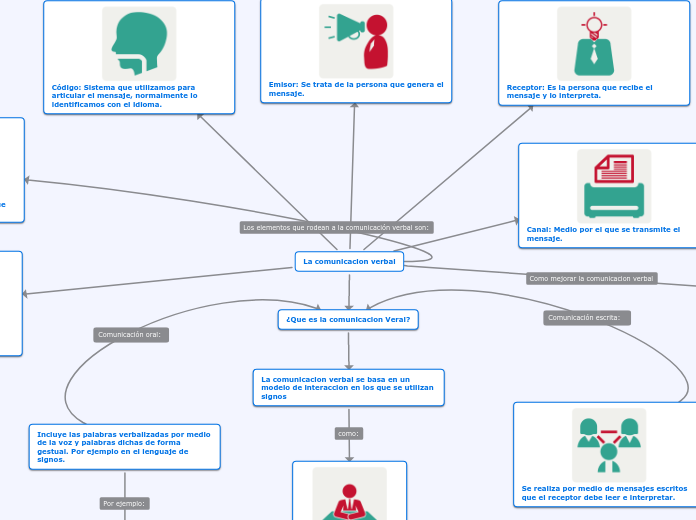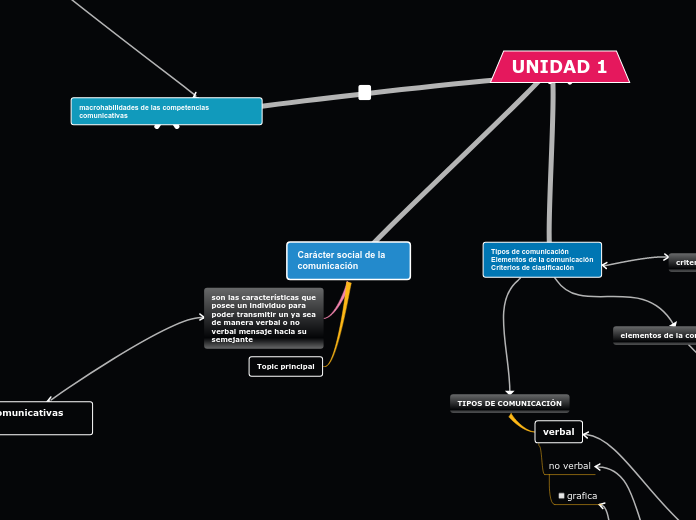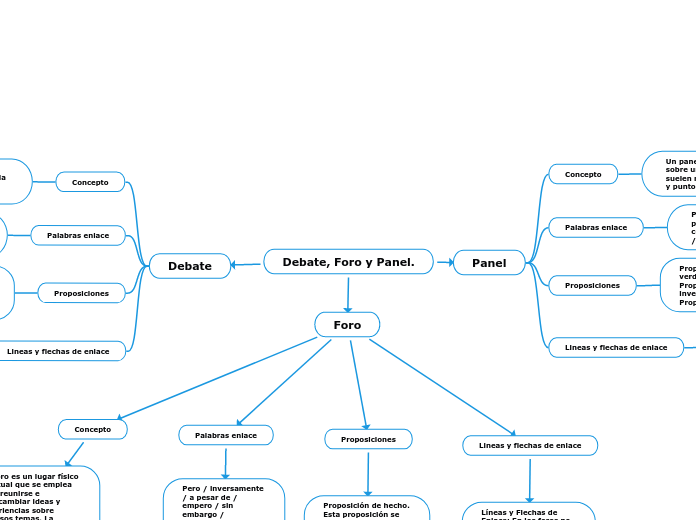Exposición Académica
As the main word in a sentence, the verb will generally describe an occurrence or an action.
El expositor debe tener
An infinitive verb is essentially the base form of a verb with the word 'to' in front of it. When you use an infinitive verb, the 'to' is a part of the verb. It is not acting as a preposition in this case.
Emotividad
Coherencia
Riqueza de léxico
Tono de voz adecuado
Fluidez
Dicción
Características
The negative verb forms are made by putting not after an auxiliary verb.
Objetividad
Orden
Claridad
Elementos
Auxiliary verbs are verbs such as have, be, may, do, shall, will, can, or must that are used with another verb to show the verb's tense, to form a question, etc.
Receptor
léxico y tono acorde a este
Relación entre emisor y receptor
el emisor se adapta al receptor
Emisor
transmite objetivamente
posee conocimientos
Planificación
A transitive verb will only makes sense if it applies its action on an object.
Presentar a auditorio
Preparar intervención
Elaborar recursos
Audiovisuales
Impresos
Elaborar un guión
Ordenar información
Buscar información
Estructura
An intransitive verb has two characteristics:
1.it is an action verb, expressing a doable activity
2.it will not have a direct object receiving the action
Conclusión
despedida
agradecimiento
comentarios
síntesis de lo expuesto
Desarrollo
explica el tema
Introducción
despierta el interés
presentación del tema
saludo
Concepto
A modal verb is a type of verb that is used to indicate modality. Commonly used modal verbs are can, could, must, should, had better, have to and sometimes need or dare.
presentación clara y precisa
Create sentences with examples!
